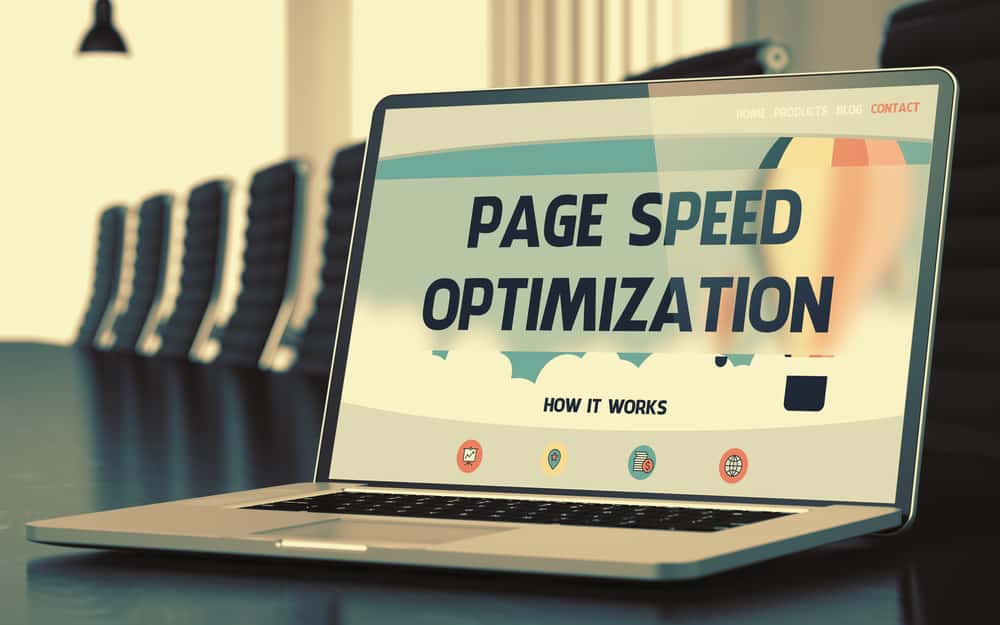
28 Jul How Important Is the Load Speed of Your WP blog for Google Ranking?
There aren’t many things online that are as infuriating as a website which takes forever to load. Nowadays, people are not going to have the patience to wait more than a few seconds before they are able to interact with the page. Most visitors quit at that point and move onto something else. But those that do decide to stick it out get upset about it, so their overall experience with the site ends up being pretty bad. To make matters worse, Google views site speed as one of the 200 major SEO signals which it uses to come up with website ranking.
However, as is usually the case with Google, they don’t say how big of a role it plays. Of course, site relevancy, great content, and links still remain the most important SEO signals, but when it comes to site speed, it’s pretty difficult to tell how much it matters. There are plenty of things you can do to speed up your WordPress blog, but for the purpose of this article, we shall focus on how much truth there is to claims that slow site speed will cause Google to take your blog down a few pegs in terms of ranking.
Site Does Affect User Experience
Google has been talking about site speed since 2009, but being as tight-lipped as ever, they haven’t really shown told us much. Large players, such as Amazon and Walmart have come to Google’s aid, citing that site speed is a huge factor when it comes to user experience, and ultimately, their profit. Indeed, Amazon’s sales suffer by as much as 1% per every 100ms of latency, and Walmart has established a similar correlation. But, this still doesn’t provide us with a good insight into the importance of site speed. Sure, users prefer fast websites and they will bounce if the website is slow, but there are plenty of slow websites which still manage to obtain high Google ranking. For further answers, we need to look into other studies and research.
Direct Connection between Ranking and Site Speed Inconclusive?
The most in-depth study regarding site speed has been done by Moz.com. Their research included over 2,000 websites, and over 100,000 on total in order to determine the connection between site speed and ranking. The first obstacle Moz came across was the definition of site speed itself. Curiously enough, they weren’t able to establish a direction correlation either document complete time, nor the fully rendered time, and Google ranking. Also, the number of images and other media didn’t play a significant role either. What they did find is that Time to First Byte does matter when it comes to ranking. The improvements for this are done mostly on the back-end. Front-end improvements were done in order to improve the user experience.
In 2016, Backlinko have done a study of their own, in which they have analyzed over 1,000,000 search results and examined how different SEO signals affect website ranking on Google. As expected, they were able to determine that the number of backlinks and their authority played a massive role in ranking. The same was determined for topic relevance. However, they were able to find that high-ranking websites all had has fast loading times. But, all of these websites also has very high link authority and relevant content. This means that it was impossible to determine how much of a role site speed actually played. There was an obvious correlation, but they weren’t able to come up with a definitive conclusion.
Research was also done at the University of Poznan, which relied on previous research by Google and Moz. They used load time as a measurement for each of the results. The test involved searching for 40 keywords and looking at the first 30 search results. The results showed that while loading time did play a part in Google’s ranking algorithm, it wasn’t hugely important as some of the other major signals. But, the researchers did find that Google did consider crawl time into consideration in order to determine website ranking. Their final conclusion was that page load speed was not used as a ranking factor, but on the other hand, they determined the opposite for crawl time. Its weight was anywhere between 0.35% and 1.04%, and it was a signal which was used to tip scales in case two or more websites were equal in other signals.
Summary
As you can see, most studies manage to establish at least a correlation between site speed and ranking, which means that you cannot afford to ignore it as an SEO signal. There is plenty of competition out there, and site speed might just be the thing which helps get ahead.
—
ABOUT THE AUTHOR
Today, Jack White is an excellent writer who has worked his way up from the bottom. He is currently working in the department of PR at Essays.ScholarAdvisor and has great aspirations to continue his success in the future.



No Comments